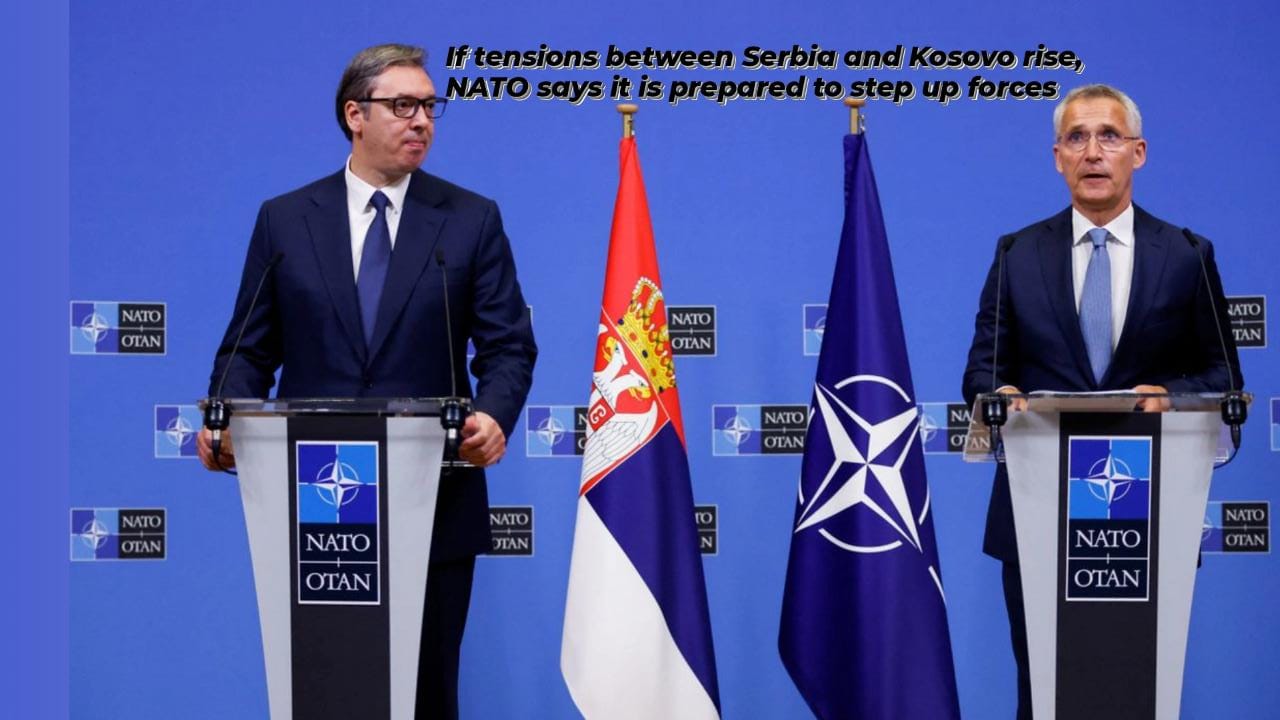
On the eve of negotiations between the estranged western Balkan neighbours that the EU is facilitating, NATO’s head warned on Wednesday that the alliance would raise its peacekeeping presence in Kosovo if tensions with Serbia escalated.
After meeting with the Serbian President Aleksandar Vucic in Brussels, Jens Stoltenberg said at a news conference that ‘we now have a large mission, a military presence in Kosovo of up to 4,000 troops.’
‘We will shift our troops, place them where they are required, and amplify our presence as necessary. In the north, we have already stepped up our presence. We are willing to go beyond.’
When Pristina announced that it would force Serbs residing in the north, who are supported by Belgrade and do not recognise Kosovo institutions, to begin using car licence plates issued in Pristina, tensions between Serbia and Kosovo erupted this month.
Albin Kurti, the prime minister of Kosovo, decided to delay the requirement for number plates until September 1 after being pressured by the United States and the European Union, while NATO forces monitored the removal of barricades erected by Serbs.
However, Vucic stated at the NATO news conference that the Thursday negotiations with Kurti, which will be organised by the EU, will be challenging because the two sides have virtually no common ground.
Kurti emphasised Kosovo’s determination to join NATO when he later met Stoltenberg.
He told reporters that ‘the threats, risks and challenges that NATO faces in the current security climate are felt by our country as well,’ and he blamed Russia’s influence for the issues.
‘In the current scenario, Kosovo’s institutions and population have reason to be on guard against (our northern neighbor’s) damaging approach towards Kosovo and the region in general under Russia’s detrimental agenda for Europe and the Balkans.’
Almost ten years after a guerrilla rebellion against oppressive Belgrade rule, Kosovo gained independence from Serbia in 2008.
Kosovo is still regarded by Serbia as being a part of its territory. It accuses Pristina of violating the rights of the minority Serb population while denying inflaming tensions and strife there. Kosovo’s 1.8 million population, which is 90% ethnic Albanian, includes 5% ethnic Serbs.
A new generation of young men who consider Kosovo as Serbian land and won’t ‘put up with the fear,’ according to Vucic, must be understood if Serbia is to prevent any further escalation of the situation.

Post Your Comments